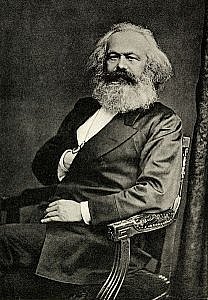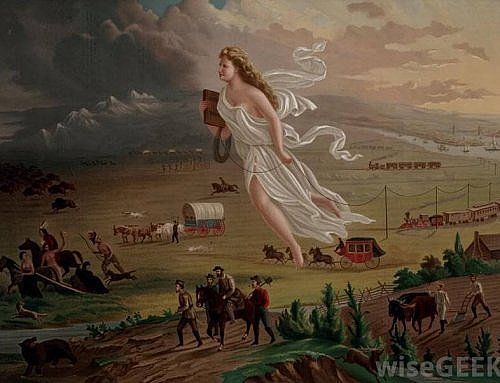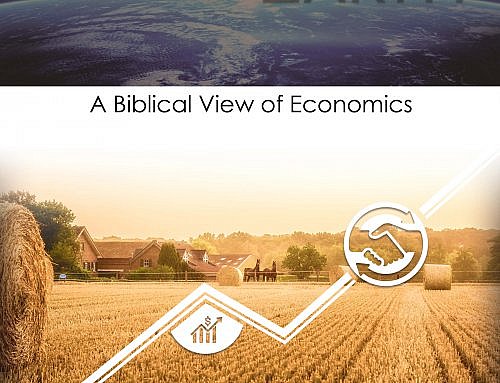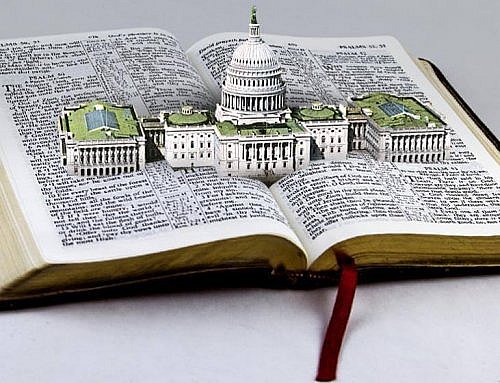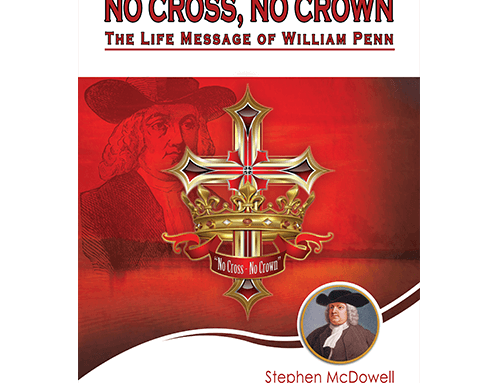Stephen McDowell
The Bible teaches the idea of private property. While God created all things, and thus all property is His (Ps. 24:1-2), He gave to man the stewardship of His property (Ps. 115:6). The Eighth Commandment – “you shall not steal” (Ex. 20:15) – implies private property rights. The Tenth Commandment, not coveting your neighbor’s property (Ex. 20:17), implies individual ownership of property, as does the law, “You shall not move your neighbor’s boundary mark” or property boundaries (Deut. 19:14; Deut. 27:17). God’s law requires restitution to be made to the property owner by the thief (Ex. 22:1 ff; Prov. 6:30-31).
Jeremiah bought a field from his cousin. He signed a deed with witnesses after paying money for it (Jer. 32:1-16). This was a sign that houses and land would again be possessed by Israel (for the Chaldeans had captured it). We see private ownership and the free market here.
The New Testament affirms private property rights as well. The parable of laborers in the vineyard (Matt. 20:1-16) teaches that the landowner could do what he wished with his own things: “Is it not lawful for me to do what I wish with my own things?” (Mt. 20:15). The early church in Jerusalem voluntarily sold their property to help those in need. Peter affirmed the ownership and individual control of the property of Ananias and Sapphira: “While it remained, was it not your own? And after it was sold, was it not in your own control?” (Acts 5:4).
The Family Has the Right to Own and Govern Property
Ownership of property in Israel was primarily for the benefit of the family. Families in Israel were given land (Joshua 12-31) as a permanent possession (Lev. 24:10). Parents are to leave an inheritance (including possessions and property) for their children (Prov. 13:22; 2 Cor. 12:14; Pr. 19:14). God intends for families to be the primary manager of His property. The family is the primary institution to take dominion (Gen. 1:26-28) and to do this it must own and control land and other types of property.
Noah Webster considered the principle of property as foundational for the freedom of America. This idea was expressed in his essay written in support of the Constitution: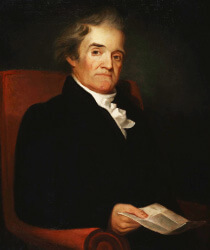
The liberty of the press, trial by jury, the Habeas Corpus writ, even Magna Charta itself, although justly deemed the palladia of freedom, are all inferior considerations, when compared with a general distribution of real property among every class of people. The power of entailing estates is more dangerous to liberty and republican government than all the constitutions that can be written on paper, or even than a standing army. Let the people have property and they will have power – a power that will forever be exerted to prevent a restriction of the press, and abolition of trial by jury, or the abridgement of any other privilege.[1]
Webster worked to preserve this principle at every level. He recognized that property rights not only included external things, such as land, houses, and merchandise, but also internal property, such as inventions and writings. He believed that “the production of genius and the imagination are if possible more really and exclusively property than houses and lands, and are equally entitled to legal security.”[2] This conviction motivated him to travel throughout the country to secure copyright legislation on the state and national level.
Property is both external and internal. A person’s property is whatever he has exclusive right to possess and control. Property is first internal. A person’s conscience is his most precious aspect of property because it tells him what is right and wrong in his actions. Each person in a free government must be a good steward of his conscience and keep it clear. By doing so, he will know what is right and wrong from within and, therefore, he will be able to live his life in a right manner. The apostle Paul said he did his “best to maintain always a blameless conscience both before God and before men” (Acts 24:16).
“Let the people have property and they will have power.”
Governments exist to protect property of every sort. Yet, pagan governments fail in this. Statism and its many forms (socialism, communism, Marxism, socialist democracy) seek to control or own property. Instead of protecting property they plunder property. The state controls property in many ways, including:
- Property taxes, inheritance taxes, graduated income taxes.
- Ideas of sharing the wealth by taking from the productive and giving to the less productive.
- Excessive regulations of property, business, land use, personal behavior, etc.
- Eminent domain
This pagan idea of government ownership or control of property is not new. It has been a primary way that Satan has sought to control God’s earth and God’s people. One way that human beings express the image of God (we were created in His image, Gen. 1:27) is through ownership of property and is why God instituted private property from the beginning. We are like God when we own and manage property. Ownership gives us opportunities to imitate God’s character and attributes. Just as God is sovereign over all the creation, He has given to mankind the opportunity to be sovereign over a small part of that creation by managing and being good stewards of houses, land, material resources, cars, possessions and other types of external property. He also wants us to take possession of internal property, such as ideas to create businesses, correct political philosophy to run governments, proper societal behavior, and various biblical ideas of life. As we are good stewards of this property we are able to show the love, justice, mercy, creativity, and goodness of God.
If governments own or control all property then they control all of life. They can determine where you live, how you are educated, what type of work you can and cannot do, what goods and services are available in the marketplace, and how much money you can earn. The more you are controlled, the less liberty you possess. Instead of living free under God, you live in bondage under tyrannical man. Communism is based upon the government owning all property. Karl Marx said:
“The theory of the Communists may be summed up in the single sentence: abolition of private property.”[3]
Tyrannical governments will take from man what God wants man to have. When Israel asked for a king, contrary to God’s desire, Samuel warned them of the consequences of this pagan top-down form of government:
“This will be the procedure of the king who will reign over you; he will take your sons …. He will take your daughters.… He will take the best of your fields…. He will take a tenth of your seed…. He will also take your … best young men … for his work…. He will take a tenth of your flocks, and you yourselves will become his servants.” (1 Sam. 8:10-18)
The consequence of government taking what does not belong to it is enslavement of the people in the nation. If government controls all property it controls all life. It thus robs humans of expressing the image of God and living in the great liberty that God intended for man from the beginning. Statism turns a nation into a giant prison.
Pagan civil governments also seek to control or own your internal property – your thoughts and ideas. Consider a recently purposed law by city leaders in San Antonio. It forbids anyone who opposes homosexuality from running for office or serving in the government, and you can be fined for holding this position! Tyrannical governments will invade rights of conscience as well as external property rights. The power that can invade liberty of conscience, can also usurp civil liberty. Internal property rights must, therefore, be guarded at all costs, for as they are diminished, every inalienable right of man is jeopardized.
Humans have a right to own property. It is a God-given right. Property rights are human rights, one of the most fundamental human rights. Each of the three divine institutions (family, church, state) has some authority in the field of economics, but the family is the primary agency, because they are the primary agency of dominion. As Noah Webster wrote, we must “let the people have property and they will have power” to accomplish God’s mission to express His image and extend His kingdom in all the earth.
[1] Rosalie J. Slater, “Noah Webster, Founding Father of American Scholarship and Education,” in Noah Webster, An American Dictionary of the English Language, republished in facsimile edition by Foundation for American Christian Education, San Francisco, 1980, p. 14.
[2] Slater, p. 15.
[3] Karl Marx, Communist Manifesto, New York: International Publishers, 1948, p. 23. Quoted in Wayne Grudem, Politics According to the Bible, Grand Rapids: Zondervan, 2010, p. 262.


